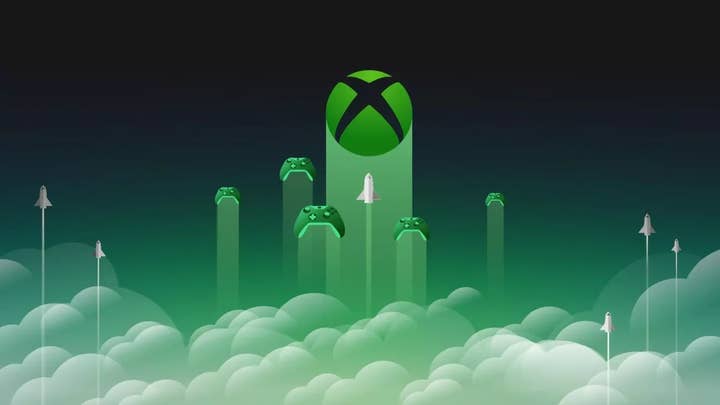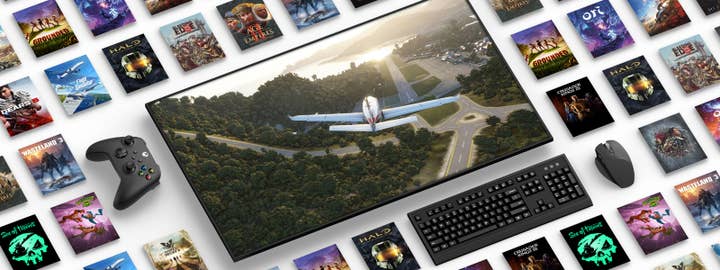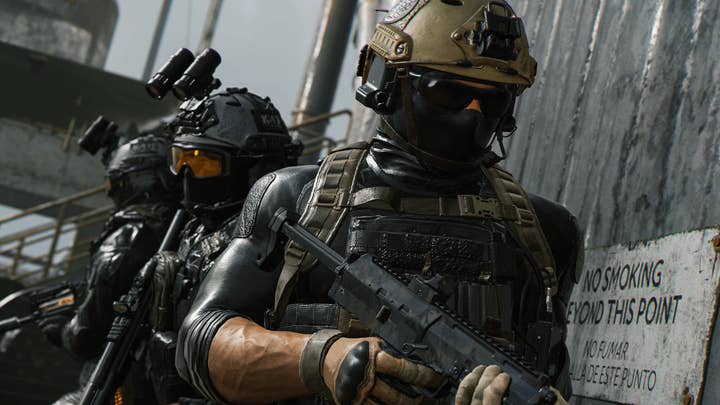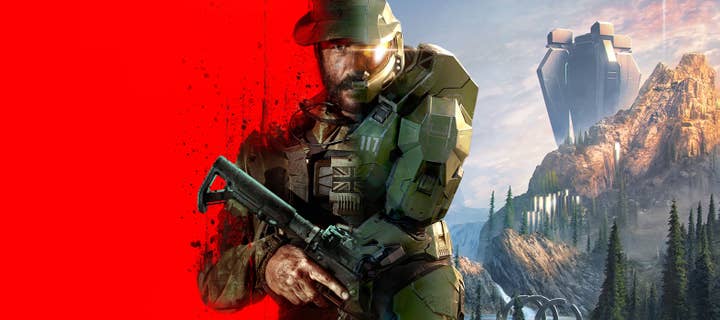So, Microsoft now owns Activision Blizzard. How will this affect the rest of the industry?
Analysts and developers weigh in on the completion of gaming's biggest M&A deal to date - and what happens next
The deal is done. Activision Blizzard is now a wholly-owned subsidiary of Microsoft after two years of regulatory investigations and in the face of protests from various corners of the games industry.
With the 'will they/won't they' part of this saga finally over, the pressing question is: What happens next?
"At the risk of hyperbole, I believe we will see a significantly changed video game industry once the two companies are fully integrated," Kantan Games CEO Dr. Serkan Toto tells GamesIndustry.biz. "In the US, we only have two big, publicly traded video game studios left – and even those have been perpetual acquisition targets for several years now, although I personally hope they stay independent as long as possible."
Imre Jele, formerly co-founder of Bossa Studios, adds: "Honestly, I have yet to see audiences (or the rest of the ecosystem) benefiting from a company having significant market dominance.
"As a game creator, I applaud the success of any company, let it be small or large. That said, I am worried about any company getting a clear upper hand and a final word in the games market. So we just have to wait and see how other huge gaming behemoths react to this outcome."
Others are more optimistic. Midia Research's senior games analyst Karol Severin believes this could be "Microsoft's 'Big Bang' moment in games," adding that the deal will boost not only Microsoft's gaming revenues but also benefit consumers – although he notes it will make things "tougher for publishers and developers who aren’t Activision in the mid-long term."
IDG Consulting's VP of consulting Emilie Avera says the acquisition "signals a promising future for the involved brands," likening it to the combination of Marvel, Pixar and Lucasfilm under Disney in terms of "cultural footprint."

In particular, she noted the opportunity to revive franchises such as Crash Bandicoot, Spyro, Guitar Hero and Tony Hawk's Pro Skater without the need for these to hit certain sales milestones. As for Xbox's next move, she observes that this deal is in line with a strategy the platform holder has been discussing for a long time.
"Phil Spencer’s vision has consistently been about transforming Xbox from a console-centric brand to a content-first platform, emphasizing player engagement over console sales," she explains. "In a 2019 interview, he articulated that 'The business isn’t how many consoles you sell. The business is how many players are playing the games that they buy, how they play.'
"This philosophy of self-disruption and ripping up the old playbook is even more pertinent post-acquisition, reinforcing the strategy to build a robust portfolio of games and IPs. The business is no longer about the box itself, which is especially relevant in countries where consoles may never become a viable platform."

Cloud visions
The biggest stumbling block at a regulatory level was concern over Microsoft becoming dominant in cloud gaming, which the sale of streaming rights of Activision Blizzard titles to Ubisoft eventually resolved. But the nascent nature of the cloud gaming market perhaps diminishes this as a win for the regulators.

Severin says this was a "fairly easy concession for Microsoft to make" since there wouldn't have been any sound strategic reasons to make Call of Duty and other ABK titles exclusive to Xbox Cloud Gaming in the first place.
Ampere Analysis' games research director Piers Harding-Rolls adds: "While Microsoft has put a lot of focus on how streaming of games will allow it to reach a broader audience, the commercial reality of the cloud gaming market and the slow adoption of this distribution technology means the carving out of Activision’s game streaming rights is unlikely to damage the company."
He predicts that Microsoft will instead focus on day-and-date releases of new Activision games via Xbox Game Pass, but notes that a cloud gaming competitor could potentially invest heavily in getting access to the likes of Call of Duty at launch for their own multi-game subscription service.
"However, it is very hard to see how that would be commercially sustainable considering the wholesale costs that would be involved," he says. "Overall, it might result in more retail, paid-for Activision games being made available at launch through cloud gaming storefronts and not part of a multi-game subscription service. Amazon Luna would seem a good fit for that."
Omdia's senior principal analyst George Jijiashvili also expects the impact of Microsoft divesting these streaming rights to be minimal due to the steady pace of cloud gaming's growth. Omdia projects that cloud gaming revenue will generate $3.6 billion in 2023 – just 3% of the total spend on games. This is expected to only grow to 5% by 2027.
Mobile matters
Microsoft has always maintained that this deal has been a mobile play, as acquiring ABK means snapping up Candy Crush creator King, which Avera says "significantly enhances Microsoft's stance in the mobile gaming market." IDG forecasts mobile games revenues to reach over $122 billion in 2023, compared to $59 billion in console and $46 billion on PC.

Toto, however, has concerns: "I don't think King will be able to make much use of Xbox properties in the future – if that is the plan at all. All this talk of synergies, cross-pollination and so on is very often just theoretical, so I think King will remain King without many changes."
Harding-Rolls notes that bringing King into the fold is a great foundation for Microsoft's future mobile games business, although he believes it will be more relevant to Game Pass than the oft-discussed expectation that Microsoft will launch its own mobile app store.
"Sure, Microsoft would probably jump at the chance of competing more significantly with its own app store," he acknowledges, "but I would consider that a longer-term goal. Microsoft is using Game Pass as its spear to attract new audiences. Originally it was quite wedded to the idea of Game Pass and app store rolling out together across platforms, but that is no longer the case."
Mike Rose, founder and director of Descenders publisher No More Robots, questions whether Microsoft can even grow Candy Crush from the long-running smash hit that it already is: "If Activision was spending $X to acquire users and getting $Y profit from it, can Microsoft simply churn even more into acquiring users and make their profits even more ridiculous? It’s unlikely they’ll just take it and not try to blow it up. It's going to be an interesting maths puzzle for them to solve."

Growing Game Pass
Most analysts agree that Xbox Game Pass will be impacted the most by Microsoft acquiring Activision Blizzard, thanks to the expected injection of its back catalogue and future releases.
Omdia notes that PlayStation Plus is actually ahead with an estimated 50.1 million subscribers in 2023, compared to 41.7 million on Xbox (if you factor in users on Game Pass Core, formerly Xbox Live Gold). But it adds that Xbox Game Pass is ahead of PS Plus in regards to the tier mix and pricing structure.

"We estimate that nearly half of Xbox Game Pass subscribers will be on the Ultimate tier at the end of 2023," says Jijiashvili. "This is in stark contrast to PS Plus, which we estimate around two-thirds will be on the cheapest Essential tier."
He adds that subscriptions' role as the primary business model for a games platform remains unproven. While it offers a cost-effective experience for the user, it raises difficult financial questions when it comes to sustaining blockbuster games development.
Severin adds: "The acquisition will undoubtedly have a positive impact on Game Pass subscriptions, and with it publishers becoming more dependent on the Xbox ecosystem. One effect is their negotiating power will weaken in the process. Another effect is that as gamers increasingly pick up games subscriptions, they will likely buy fewer individual high price point games going forward."
Jörg Tittel – director of C-Smash VRS and The Last Worker, as well as host of the Directional Podcast with Chantal Ryan – worries about the impact on the visibility of indie games included in Game Pass, as well as the possibility of games in general becoming devalued.
"If you can get the new COD for 'free', why should you try out the next indie gem?" he says. "Especially since COD has been established as the most valuable game of all time – almost ten times more valuable than Skype, which Microsoft acquired years ago."
Rose adds: "As Microsoft has said, Game Pass numbers have slowed and it’s started to hit what seems to be some kind of limit in terms of the number of people who are willing to subscribe. But if the latest Call of Duty lands on Game Pass, isn’t that just going to be too big to say no to? Are millions of people going to continue to pay $70 for CoD when they could go with Game Pass?
"Obviously from my perspective as someone with games on Game Pass, I hope they choose Game Pass — that’ll mean more players for my games on the service, potentially bigger Game Pass deals to go with the bigger subscriber numbers… definitely an outcome I’d be open to."
When two become one
Questions also remain about the structure of Microsoft once Activision Blizzard is fully integrated. Following this acquisition, and with Bethesda parent ZeniMax already part of the machine, Xbox will have three publishing divisions.
Toto does not believe there will be a high level of integration or consolidation, while Harding-Rolls predicts Microsoft will maintain the status quo for the time being.
"Over time I think there will be some integration and centralisation, but in areas where they will look to strip out costs and implement efficiencies," he says. "This could be on the commercial side and marketing for example. Overall, I expect the businesses, and more importantly the studios, to run with a good deal of autonomy albeit reporting in to the senior executives at Xbox."
Avera predicts Microsoft and the two publishers it owns will more likely streamline their technologies rather than their staff.

"For instance, the anticipated absorption of Battle.net into Game Pass signifies more than a platform change; it's a chance for cross-educational enhancement," she explains. "Battle.net’s superior UI elements could influence future improvements in the Xbox ecosystem, ensuring a smoother user experience.
"However, culture remains the biggest integration risk, as Microsoft has its own unique culture, as does ABK, as does ZeniMax/Bethesda. Successfully integrating and absorbing all three entities into one cohesive whole is easier said than done, and this is an area where PlayStation has done an admirable job of integrating new studios, many of which were already second-party partners, into first-party studios such as Insomniac and Housemarque."
Speaking of PlayStation, there is speculation as to whether the completion of this deal will compel Sony to reach in some way. Severin believes the platform holder has an opportunity to go beyond anything Microsoft is building; while Xbox's future is a cross-platform ecosystem, Sony's operations in film, TV, music and games mean it could create a cross-entertainment proposition.
"Sony has one of the most impressive content catalogues on Earth," Severin explains. "Bringing it together in a subscription offering for example could pose a solid competitive answer to Xbox’s cross-platform efforts. It will be increasingly difficult to compete with Microsoft on games only. The only response for Sony on the games-only side would be buying something really big like Take-Two, but that is unlikely."
Harding-Rolls predicts Sony will remain active in M&A but will retain its strong position in the current console generation, while Toto expects the company to maintain its current product strategy of focusing on $70 blockbusters.
"Sony surely is under pressure to react, even after their Bungie acquisition," he says. "I expect further investments and acquisitions for PlayStation, including a large one that would move the needle for them in a meaningful way."

The post-MS/ABK future
Microsoft has signed deals to guarantee Call of Duty will continue to release on PlayStation, and even Nintendo platforms, for the next ten years, but it's also been speculated that someone could spend this time developing a true competitor to Activision's market-leading series.
Analysts agree that this would be incredibly difficult – after all, no one else has managed it in the past 20 years – with Avera noting that "new hit IPs these days are often built upon some new gameplay mechanic or genre disruption that the status quo market was not anticipating."
While it's unknown whether we'll see the likes of this deal again any time soon, IDG expects even more industry consolidation in the near-term future, despite the volatility in both the public and private markets.

"We are in a strange time in games, as previous consolidators such as Embracer are thinking about divestitures, and prior acquisitive strategics like Electronic Arts are now more likely to be acquired than to do the acquiring themselves," says Avera. "Yet the Microsoft-ABK acquisition demonstrates that other major AAA strategics could also be on the M&A table, including EA, Take-Two, and Ubisoft."
As for the rest of the industry, Omdia's Jijiashvili says the merger "tilts the balance of power significantly in Microsoft's favour," giving the Xbox firm a "big opportunity to dictate the future of the games industry."
"My rather optimistic view is that this deal will make Xbox more competitive in the triple-A space than ever before, which will lead to heightened competition overall, resulting in increased efforts from other platform holders and leading game publishers," he says.
"Having said that, Microsoft’s success is not guaranteed, especially as its track record with acquisitions has been a mixed bag. This year's two key game launches, Redfall and Starfield, have been met with mixed reactions at best. However, with globally popular game franchises such as Call of Duty now under its wing, the company is strategically much better positioned than ever before."

